183 papers:
 ITiCSE-2015-ChaudhariD #formal method
ITiCSE-2015-ChaudhariD #formal method- Introducing Formal Methods via Program Derivation (DLC, OPD), pp. 266–271.
 CIAA-2015-Ade-IbijolaES #programming
CIAA-2015-Ade-IbijolaES #programming- Introducing Code Adviser: A DFA-driven Electronic Programming Tutor (AAI, SE, IDS), pp. 307–312.
 CHI-2015-AchibetCLM #3d #interactive #modelling #named
CHI-2015-AchibetCLM #3d #interactive #modelling #named- THING: Introducing a Tablet-based Interaction Technique for Controlling 3D Hand Models (MA, GC, AL, MM), pp. 317–326.
 CSCW-2015-LiZLDG #collaboration #editing #trade-off #wiki
CSCW-2015-LiZLDG #collaboration #editing #trade-off #wiki- Is It Good to Be Like Wikipedia?: Exploring the Trade-offs of Introducing Collaborative Editing Model to Q&A Sites (GL, HZ, TL, XD, NG), pp. 1080–1091.
 DUXU-UI-2015-AmaralBBM #concept #human-computer #women
DUXU-UI-2015-AmaralBBM #concept #human-computer #women- Introducing Computer Science to Brazilian Girls in Elementary School Through HCI Concepts (MAA, SAB, CB, CM), pp. 141–152.
 HIMI-IKC-2015-GavishN
HIMI-IKC-2015-GavishN- The Effect of Timing When Introducing a Decision Aid in a Decision Support System for Supply Chain Management (NG, HN), pp. 101–108.
 RecSys-2015-Guardia-Sebaoun #modelling #performance #recommendation
RecSys-2015-Guardia-Sebaoun #modelling #performance #recommendation- Latent Trajectory Modeling: A Light and Efficient Way to Introduce Time in Recommender Systems (ÉGS, VG, PG), pp. 281–284.
 ECSA-2014-OzturkSSA #architecture #estimation #refactoring
ECSA-2014-OzturkSSA #architecture #estimation #refactoring- Effort Estimation for Architectural Refactoring to Introduce Module Isolation (FÖ, ES, HS, BA), pp. 300–307.
 DATE-2014-PandaB #concurrent #thread
DATE-2014-PandaB #concurrent #thread- Introducing Thread Criticality awareness in Prefetcher Aggressiveness Control (BP, SB), pp. 1–6.
 HCI-AIMT-2014-CataniaPS #human-computer #interactive #internet
HCI-AIMT-2014-CataniaPS #human-computer #interactive #internet- Introducing Consciousnet : Internet Content as an Environment for Human-Machine Interaction (VC, DP, MS), pp. 382–393.
 HCI-AIMT-2014-HulsmannM #named #recognition
HCI-AIMT-2014-HulsmannM #named #recognition- HOUDINI: Introducing Object Tracking and Pen Recognition for LLP Tabletops (AH, JM), pp. 234–244.
 LCT-NLE-2014-KirkegaardGS
LCT-NLE-2014-KirkegaardGS- Introducing a Challenging Teachable Agent (CK, AG, AS), pp. 53–62.
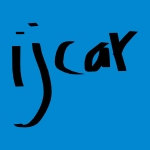 IJCAR-2014-HetzlLRTW #logic #quantifier #similarity
IJCAR-2014-HetzlLRTW #logic #quantifier #similarity- Introducing Quantified Cuts in Logic with Equality (SH, AL, GR, JT, DW), pp. 240–254.
 CSEET-2013-CaiKJA #architecture #bibliography #design #education
CSEET-2013-CaiKJA #architecture #bibliography #design #education- Introducing tool-supported architecture review into software design education (YC, RK, CJ, JA), pp. 70–79.
 CSEET-2013-ShethBK #approach #re-engineering
CSEET-2013-ShethBK #approach #re-engineering- A competitive-collaborative approach for introducing software engineering in a CS2 class (SS, JB, GEK), pp. 41–50.
 ITiCSE-2013-PatitsasL #security
ITiCSE-2013-PatitsasL #security- Dr. Horrible’s fork bomb: a lab for introducing security issues in CS2 (EAP, DL), p. 318.
 ITiCSE-2013-Renaud #student
ITiCSE-2013-Renaud #student- Introducing computing students to scientific experimentation (KR), pp. 76–81.
 DHM-SET-2013-AlmAGEVD #interactive #people
DHM-SET-2013-AlmAGEVD #interactive #people- Supporting Conversation for People with Dementia by Introducing a Computer-Based Third Element to the Interaction (NA, AA, GG, ME, PV, RD), pp. 143–149.
 HCI-AS-2013-ParthasarathyF #interface
HCI-AS-2013-ParthasarathyF #interface- Introducing Emotional Interfaces to Healthcare Systems (RP, XF), pp. 150–162.
 SEKE-2013-PortugalO #process #specification
SEKE-2013-PortugalO #process #specification- Introducing Software Process Specification to Task Context (S) (IdSP, TCO), pp. 22–25.
 ER-BR-2013-HadadD #process #requirements #variability
ER-BR-2013-HadadD #process #requirements #variability- Introducing Variability in a Client-Oriented Requirements Engineering Process (GDSH, JHD).
 CSMR-2012-BernardiCLPD #communication #debugging #developer #eclipse
CSMR-2012-BernardiCLPD #communication #debugging #developer #eclipse- Do Developers Introduce Bugs When They Do Not Communicate? The Case of Eclipse and Mozilla (MLB, GC, GADL, MDP, DD), pp. 139–148.
 MSR-2012-AsaduzzamanBRS #android #case study #debugging
MSR-2012-AsaduzzamanBRS #android #case study #debugging- Bug introducing changes: A case study with Android (MA, MCB, CKR, KAS), pp. 116–119.
 CHI-2012-PlodererSHPB
CHI-2012-PlodererSHPB- Introducing the ambivalent socialiser (BP, WS, SH, JMP, RB), pp. 1511–1514.
 ICEIS-J-2012-HayashiMB12a #education
ICEIS-J-2012-HayashiMB12a #education- Introducing New Technology in Educational Contexts: Schools as Organizations (ECSH, MCM, MCCB), pp. 340–357.
 ICEIS-J-2012-SilcherDMM12a #lifecycle
ICEIS-J-2012-SilcherDMM12a #lifecycle- Advanced Product Lifecycle Management by Introducing Domain-Specific Service Buses (SS, MD, JM, BM), pp. 92–107.
 ICEIS-v1-2012-LambeckSAG #concept #enterprise #realtime
ICEIS-v1-2012-LambeckSAG #concept #enterprise #realtime- Changing Concepts in Human-Computer-Interaction in Real-time Enterprise Systems — Introducing a Concept for Intuitive Decision Support in SCM Scenarios (CL, DS, RA, RG), pp. 139–144.
 SEKE-2012-BelkhatirOV #composition #quality
SEKE-2012-BelkhatirOV #composition #quality- A Model Introducing SOAs Quality Attributes Decomposition (RB, MO, AV), pp. 324–327.
 SAC-2012-NeumannC #algorithm #estimation
SAC-2012-NeumannC #algorithm #estimation- Introducing intervention targeting into estimation of distribution algorithms (GN, DC), pp. 220–225.
 DAC-2011-AarestadLPAA #process
DAC-2011-AarestadLPAA #process- Characterizing within-die and die-to-die delay variations introduced by process variations and SOI history effect (JA, CL, JP, DA, KA), pp. 534–539.
 ITiCSE-2011-BellCCDH #programming #student
ITiCSE-2011-BellCCDH #programming #student- Introducing students to computer science with programmes that don’t emphasise programming (TB, PC, QIC, VD, BH), p. 391.
 ITiCSE-2011-WahbaFH #network #student
ITiCSE-2011-WahbaFH #network #student- A technology-assisted scavenger hunt for introducing K-12 students to sensor networks (SKW, YF, JOH), pp. 73–77.
 MSR-2011-ParninBM #how #java
MSR-2011-ParninBM #how #java- Java generics adoption: how new features are introduced, championed, or ignored (CP, CB, ERMH), pp. 3–12.
 DHM-2011-FritzscheJLBJP #editing #performance #process #simulation
DHM-2011-FritzscheJLBJP #editing #performance #process #simulation- Introducing ema (Editor for Manual Work Activities) — A New Tool for Enhancing Accuracy and Efficiency of Human Simulations in Digital Production Planning (LF, RJ, WL, SB, TJ, AP), pp. 272–281.
 DUXU-v2-2011-ArdavanC #3d #exclamation #safety #towards
DUXU-v2-2011-ArdavanC #3d #exclamation #safety #towards- Listen! Somebody Is Walking towards Your Car (Introducing the Awareness-3D Sound System into the Driver to Increase the Pedestrian’s Safety) (MA, FC), pp. 89–98.
 HCI-ITE-2011-PoorJ #human-computer #interactive
HCI-ITE-2011-PoorJ #human-computer #interactive- Introducing Animatronics to HCI: Extending Reality-Based Interaction (GMP, RJKJ), pp. 593–602.
 HCI-UA-2011-GeorgeS #collaboration #game studies #learning
HCI-UA-2011-GeorgeS #collaboration #game studies #learning- Introducing Mobility in Serious Games: Enhancing Situated and Collaborative Learning (SG, AS), pp. 12–20.
 HIMI-v2-2011-RorieKMBMMVSB #order #tool support
HIMI-v2-2011-RorieKMBMMVSB #order #tool support- A Preliminary Investigation of Training Order for Introducing NextGen Tools (RCR, AK, CAM, SB, GM, KM, KPLV, TZS, VB), pp. 526–533.
 HIMI-v2-2011-XuB #interactive #mobile #navigation #usability
HIMI-v2-2011-XuB #interactive #mobile #navigation #usability- Usability Issues in Introducing Capacitive Interaction into Mobile Navigation (SX, KB), pp. 430–439.
 ECIR-2011-SteinH #ranking
ECIR-2011-SteinH #ranking- Introducing the User-over-Ranking Hypothesis (BS, MH), pp. 503–509.
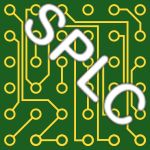 SPLC-2011-YoshimuraSOOAKWF #experience #multi #process #product line
SPLC-2011-YoshimuraSOOAKWF #experience #multi #process #product line- Key Activities for Introducing Software Product Lines into Multiple Divisions: Experience at Hitachi (KY, JS, TO, CO, YA, SK, SW, KF), pp. 261–266.
 IFL-2010-BoeijinkHK #functional #lazy evaluation
IFL-2010-BoeijinkHK #functional #lazy evaluation- Introducing the PilGRIM: A Processor for Executing Lazy Functional Languages (AB, PKFH, JK), pp. 54–71.
 CHI-2010-WangC #concept #evaluation #multi #prototype
CHI-2010-WangC #concept #evaluation #multi #prototype- Multitasking bar: prototype and evaluation of introducing the task concept into a browser (QW, HC), pp. 103–112.
 SEKE-2010-PinheiroGMS #automation #industrial #testing
SEKE-2010-PinheiroGMS #automation #industrial #testing- Introducing Automated Environment Configuration Testing in an Industrial Setting (CP, VG, FM, JS), pp. 186–191.
 SAC-2010-ZengXCB #parametricity #scalability
SAC-2010-ZengXCB #parametricity #scalability- Introducing global scaling parameters into Ncut (YZ, HX, XC, SB), pp. 1105–1106.
 SPLC-2010-CarbonM #concept
SPLC-2010-CarbonM #concept- Introducing a Conceptual Model of Software Production (RC, DM), pp. 492–493.
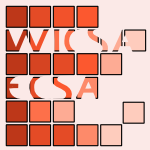 WICSA-ECSA-2009-KuhnMKSBT #aspect-oriented #performance
WICSA-ECSA-2009-KuhnMKSBT #aspect-oriented #performance- Introducing Aspect-oriented Space Containers for efficient publish/subscribe scenarios in Intelligent Transportation Systems (EK, RM, LK, CS, SB, ST), pp. 313–316.
 HT-2009-Bonacho #online
HT-2009-Bonacho #online- Introducing online reading (FB), pp. 379–380.
 ITiCSE-2009-Cassapu #education #experience #interactive
ITiCSE-2009-Cassapu #education #experience #interactive- Introducing the interactive whiteboard in computer science teaching: a high school experience (AC), p. 364.
 ITiCSE-2009-Sooriamurthi #abstraction #composition
ITiCSE-2009-Sooriamurthi #abstraction #composition- Introducing abstraction and decomposition to novice programmers (RS), pp. 196–200.
 ICSM-2009-BrooksM #metric #similarity #testing
ICSM-2009-BrooksM #metric #similarity #testing- Introducing a test suite similarity metric for event sequence-based test cases (PAB, AMM), pp. 243–252.
 HCI-NIMT-2009-SanoMSYY #adaptation
HCI-NIMT-2009-SanoMSYY #adaptation- A Robotic Introducer Agent Based on Adaptive Embodied Entrainment Control (MS, KM, RS, TY, KY), pp. 368–376.
 ICEIS-DISI-2009-Daute #approach #database #maintenance #realtime
ICEIS-DISI-2009-Daute #approach #database #maintenance #realtime- Introducing Real-time Business Case Database — An Approach to Improve System Maintenance of Complex Application Landscapes (OD), pp. 202–207.
 SAC-2009-BohnetVD #debugging #execution #locality
SAC-2009-BohnetVD #debugging #execution #locality- Projecting code changes onto execution traces to support localization of recently introduced bugs (JB, SV, JD), pp. 438–442.
 SPLC-2009-SchmidL #optimisation #product line #using
SPLC-2009-SchmidL #optimisation #product line #using- Introducing and optimizing software product lines using the FEF (KS, FvdL), p. 311.
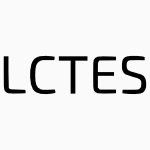 LCTES-2009-CaspiCGPR #memory management #policy #scheduling
LCTES-2009-CaspiCGPR #memory management #policy #scheduling- Synchronous objects with scheduling policies: introducing safe shared memory in lustre (PC, JLC, LG, MP, PR), pp. 11–20.
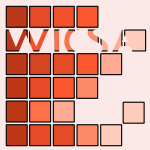 WICSA-2008-SozerT #modelling
WICSA-2008-SozerT #modelling- Introducing Recovery Style for Modeling and Analyzing System Recovery (HS, BT), pp. 167–176.
 DATE-2008-SchirnerD #modelling #scheduling #using
DATE-2008-SchirnerD #modelling #scheduling #using- Introducing Preemptive Scheduling in Abstract RTOS Models using Result Oriented Modeling (GS, RD), pp. 122–127.
 CSEET-2008-DeKoenigsberg #how #open source #student #why
CSEET-2008-DeKoenigsberg #how #open source #student #why- How Successful Open Source Projects Work, and How and Why to Introduce Students to the Open Source World (GD), pp. 274–276.
 FM-2008-McCombS #refinement
FM-2008-McCombS #refinement- Introducing Objects through Refinement (TM, GS), pp. 358–373.
 CHI-2008-SchmettowV #process #usability
CHI-2008-SchmettowV #process #usability- Introducing item response theory for measuring usability inspection processes (MS, WV), pp. 893–902.
 CHI-2008-TerryKVSP #named #open source
CHI-2008-TerryKVSP #named #open source- Ingimp: introducing instrumentation to an end-user open source application (MAT, MK, BVV, BS, TP), pp. 607–616.
 EDOC-2008-SchropferS
EDOC-2008-SchropferS- Introducing a Method to Derive an Enterprise-Specific SOA Operating Model (CS, MS), pp. 235–244.
 ICEIS-ISAS2-2008-GustieneG #analysis #design
ICEIS-ISAS2-2008-GustieneG #analysis #design- Introducing Service-Orientation into System Analysis and Design (PG, RG), pp. 189–194.
 OOPSLA-2008-GilM #java #named #type system
OOPSLA-2008-GilM #java #named #type system- Whiteoak: introducing structural typing into java (JYG, IM), pp. 73–90.
 RE-2008-SmithG #requirements
RE-2008-SmithG #requirements- Gameplay to Introduce and Reinforce Requirements Engineering Practices (RS, OG), pp. 95–104.
 SAC-2008-HolandaBF #adaptation #self #transaction
SAC-2008-HolandaBF #adaptation #self #transaction- Introducing self-adaptability into transaction processing (MH, AB, SF), pp. 992–997.
 DAC-2007-MarescauxC
DAC-2007-MarescauxC- Introducing the SuperGT Network-on-Chip; SuperGT QoS: more than just GT (TM, HC), pp. 116–121.
 DATE-2007-LisselGG #design #industrial #perspective #verification
DATE-2007-LisselGG #design #industrial #perspective #verification- Introducing new verification methods into a company’s design flow: an industrial user’s point of view (RL, JG), pp. 689–694.
 HT-2007-LeeH #named
HT-2007-LeeH #named- Qtag: introducing the qualitative tagging system (SEL, SSH), pp. 35–36.
 ITiCSE-2007-Arnold #interactive #learning #logic
ITiCSE-2007-Arnold #interactive #learning #logic- Introducing propositional logic and queueing theory with the infotraffic interactive learning environments (RA), p. 356.
 ITiCSE-2007-GoldwasserL #network #programming
ITiCSE-2007-GoldwasserL #network #programming- Introducing network programming into a CS1 course (MHG, DL), pp. 19–22.
 ITiCSE-2007-MillerS #agile #approach #embedded #programming #student
ITiCSE-2007-MillerS #agile #approach #embedded #programming #student- A TDD approach to introducing students to embedded programming (JM, MRS), pp. 33–37.
 ITiCSE-2007-TremblayMSZ #corpus #maintenance #student
ITiCSE-2007-TremblayMSZ #corpus #maintenance #student- Introducing students to professional software construction: a “software construction and maintenance” course and its maintenance corpus (GT, BM, AS, PZ), pp. 176–180.
 CSMR-2007-Suijs #experience #framework #legacy
CSMR-2007-Suijs #experience #framework #legacy- An Experience in Introducing a New Control Platform on a Legacy System (ES), pp. 319–320.
 PASTE-2007-PollockVSHFM #natural language #program analysis
PASTE-2007-PollockVSHFM #natural language #program analysis- Introducing natural language program analysis (LLP, KVS, DCS, EH, ZPF, KM), pp. 15–16.
 AGTIVE-2007-LevendovszkyLMM #mobile #tool support
AGTIVE-2007-LevendovszkyLMM #mobile #tool support- Introducing the VMTS Mobile Toolkit (TL, LL, GM, TM), pp. 587–592.
 SIGAda-2007-Barnes #ada #named
SIGAda-2007-Barnes #ada #named- SA1: introducing the best of ada (JGPB), p. 1.
 SIGAda-2007-Barnes07a #ada #named
SIGAda-2007-Barnes07a #ada #named- SP1: introducing the best of ada 2005 (JGPB), p. 3.
 CAiSE-2007-ValderasPP #design #development #process #web
CAiSE-2007-ValderasPP #design #development #process #web- Introducing Graphic Designers in a Web Development Process (PV, VP, OP), pp. 395–408.
 ICEIS-AIDSS-2007-Curley #framework #maturity
ICEIS-AIDSS-2007-Curley #framework #maturity- Introducing an it capability maturity framework (MGC), pp. 21–26.
 ICEIS-DISI-2007-Curley #framework #maturity
ICEIS-DISI-2007-Curley #framework #maturity- Introducing an it capability maturity framework (MGC), pp. 21–26.
 ICEIS-EIS-2007-Curley #framework #maturity
ICEIS-EIS-2007-Curley #framework #maturity- Introducing an it capability maturity framework (MGC), pp. 21–26.
 ICEIS-HCI-2007-Curley #framework #maturity
ICEIS-HCI-2007-Curley #framework #maturity- Introducing an it capability maturity framework (MGC), pp. 21–26.
 ICEIS-J-2007-Curley07a #framework #maturity
ICEIS-J-2007-Curley07a #framework #maturity- Introducing an IT Capability Maturity Framework (MGC), pp. 63–78.
 ICEIS-SAIC-2007-Curley #framework #maturity
ICEIS-SAIC-2007-Curley #framework #maturity- Introducing an it capability maturity framework (MGC), pp. 21–26.
 MoDELS-2007-LahireMVGBJ #aspect-oriented #modelling #variability
MoDELS-2007-LahireMVGBJ #aspect-oriented #modelling #variability- Introducing Variability into Aspect-Oriented Modeling Approaches (PL, BM, GV, AG, OB, JMJ), pp. 498–513.
 MoDELS-2007-LahireMVGBJ #aspect-oriented #modelling #variability
MoDELS-2007-LahireMVGBJ #aspect-oriented #modelling #variability- Introducing Variability into Aspect-Oriented Modeling Approaches (PL, BM, GV, AG, OB, JMJ), pp. 498–513.
 TOOLS-EUROPE-2007-KusmierekB
TOOLS-EUROPE-2007-KusmierekB- Hygienic methods Ñ Introducing HygJava (JDMK, VB), pp. 209–229.
 RE-2007-SmithG #game studies #lightweight #requirements #using
RE-2007-SmithG #game studies #lightweight #requirements #using- Using a Game to Introduce Lightweight Requirements Engineering (RS, OG), pp. 379–380.
 ICSE-2007-Ludi #requirements
ICSE-2007-Ludi #requirements- Introducing Accessibility Requirements through External Stakeholder Utilization in an Undergraduate Requirements Engineering Course (SL), pp. 736–743.
 SPLC-2007-SellierEU #enterprise #product line
SPLC-2007-SellierEU #enterprise #product line- Introducing Software Product Line Engineering for Metal Processing Lines in a Small to Medium Enterprise (DS, GBE, GU), pp. 54–62.
 ASE-2006-KimZPW #automation #identification
ASE-2006-KimZPW #automation #identification- Automatic Identification of Bug-Introducing Changes (SK, TZ, KP, EJWJ), pp. 81–90.
 ITiCSE-2006-HoltRS #education #python
ITiCSE-2006-HoltRS #education #python- Introducing python into the first year curriculum at wits (AH, SR, IDS), p. 335.
 FM-2006-Boute #formal method #independence #problem #using
FM-2006-Boute #formal method #independence #problem #using- Using Domain-Independent Problems for Introducing Formal Methods (RTB), pp. 316–331.
 FM-2006-ZhengWWX #approach #case study #development #formal method #object-oriented #using
FM-2006-ZhengWWX #approach #case study #development #formal method #object-oriented #using- Partially Introducing Formal Methods into Object-Oriented Development: Case Studies Using a Metrics-Driven Approach (YZ, JW, KW, JX), pp. 190–204.
 KDD-2006-Jonas
KDD-2006-Jonas- Introducing perpetual analytics (JJ), p. 833.
 SEKE-2006-Merz #approach #java #security #using
SEKE-2006-Merz #approach #java #security #using- Using the Dynamic Proxy Approach to Introduce Role-Based Security to Java Data Objects (MM), pp. 404–409.
 ECMDA-FA-2006-RiosBBG #development #maturity #modelling #roadmap
ECMDA-FA-2006-RiosBBG #development #maturity #modelling #roadmap- MDD Maturity Model: A Roadmap for Introducing Model-Driven Development (ER, TB, AB, NG), pp. 78–89.
 SAC-2006-LagorioZ #java
SAC-2006-LagorioZ #java- Introducing safe unknown types in Java-like languages (GL, EZ), pp. 1429–1434.
 ICSE-2006-KobayashiKSP #agile #analysis #effectiveness #interactive
ICSE-2006-KobayashiKSP #agile #analysis #effectiveness #interactive- Analysis of the interaction between practices for introducing XP effectively (OK, MK, MS, EP), pp. 544–550.
 WICSA-2005-AliPRC #aspect-oriented #calculus #mobile
WICSA-2005-AliPRC #aspect-oriented #calculus #mobile- Introducing Ambient Calculus in Mobile Aspect-Oriented Software (NA, JP, IR, JÁC), pp. 233–234.
 DATE-2005-KruseTEVS #contract #design #distributed #embedded #flexibility #process
DATE-2005-KruseTEVS #contract #design #distributed #embedded #flexibility #process- Introducing Flexible Quantity Contracts into Distributed SoC and Embedded System Design Processes (JK, CT, RE, TV, TS), pp. 938–943.
 CSEET-2005-Cowling #approach #diagrams #formal method
CSEET-2005-Cowling #approach #diagrams #formal method- Translating Diagrams: A New Approach to Introducing Formal Methods (AJC), pp. 121–128.
 ITiCSE-2005-Hamza #analysis #approach #design #object-oriented
ITiCSE-2005-Hamza #analysis #approach #design #object-oriented- Introducing object-oriented analysis and design in lower-level undergraduate courses: a pattern-based approach (HSH), p. 350.
 ITiCSE-2005-Ludi #process #re-engineering #student
ITiCSE-2005-Ludi #process #re-engineering #student- Active-learning activities that introduce students to software engineering fundamentals (SL), pp. 128–132.
 ITiCSE-2005-MarquesAMC #programming #student #using
ITiCSE-2005-MarquesAMC #programming #student #using- Using Octave to introduce programming to technical science students (NCM, FA, CM, JFC), pp. 198–202.
 ITiCSE-2005-Rosenthal #multi #recursion #using
ITiCSE-2005-Rosenthal #multi #recursion #using- Introducing recursion by using multimedia (TR), p. 374.
 CSMR-2005-SvenssonH #agile #evolution #maintenance #process
CSMR-2005-SvenssonH #agile #evolution #maintenance #process- Introducing an Agile Process in a Software Maintenance and Evolution Organization (HS, MH), pp. 256–264.
 ICSM-2005-Demeyer #morphism #performance #polymorphism #question #what
ICSM-2005-Demeyer #morphism #performance #polymorphism #question #what- Refactor Conditionals into Polymorphism: What’s the Performance Cost of Introducing Virtual Calls? (SD), pp. 627–630.
 ECMDA-FA-2005-Bloomfield #industrial #metamodelling #model transformation
ECMDA-FA-2005-Bloomfield #industrial #metamodelling #model transformation- MDA, Meta-Modelling and Model Transformation: Introducing New Technology into the Defence Industry (TB), pp. 9–18.
 GPCE-2005-LawallDMM #composition #domain-specific language
GPCE-2005-LawallDMM #composition #domain-specific language- Bossa Nova: Introducing Modularity into the Bossa Domain-Specific Language (JLL, HD, GM, AFLM), pp. 78–93.
 SAC-2005-LunaLSHHB #learning
SAC-2005-LunaLSHHB #learning- Learning system to introduce GIS to civil engineers (RL, WTL, JMS, RHH, MGH, MB), pp. 1737–1738.
 ICSE-2005-SchmidJKM #approach #embedded
ICSE-2005-SchmidJKM #approach #embedded- Introducing the puLSE approach to an embedded system population at testo AG (KS, IJ, RK, GM), pp. 544–552.
 CBSE-2004-SandstromFA #component #embedded #realtime #safety
CBSE-2004-SandstromFA #component #embedded #realtime #safety- Introducing a Component Technology for Safety Critical Embedded Real-Time Systems (KS, JF, MÅ), pp. 194–208.
 ITiCSE-2004-Gal-EzerLS04a
ITiCSE-2004-Gal-EzerLS04a- Introducing undecidability (JGE, DL, DS), p. 276.
 ITiCSE-2004-Leska #education #programming #using
ITiCSE-2004-Leska #education #programming #using- Introducing undergraduates to programming using robots in the general education curriculum (CL), p. 263.
 ITiCSE-2004-Liffick #human-computer
ITiCSE-2004-Liffick #human-computer- Introducing assistive technology in an HCI course (BWL), p. 232.
 CSCW-2004-HupferCRP #collaboration #development
CSCW-2004-HupferCRP #collaboration #development- Introducing collaboration into an application development environment (SH, LTC, SIR, JFP), pp. 21–24.
 ICEIS-v4-2004-BalatosPIJL #concept #design #e-commerce #framework
ICEIS-v4-2004-BalatosPIJL #concept #design #e-commerce #framework- Introducing an Operational and Techonological E-Commerce Framework for European SMEs: Designing Regional and Interegional E-Commerce Zones for SMEs in Four Less Favoured European Regions (LFRS) Based on Request Based Virtual Organisation (RBVO) Concept (AB, KP, II, VJ, ML), pp. 309–315.
 SPLC-2004-StegerTBMPSF #case study #experience
SPLC-2004-StegerTBMPSF #case study #experience- Introducing PLA at Bosch Gasoline Systems: Experiences and Practices (MS, CT, BB, AM, OP, WS, SF), pp. 34–50.
 CSEET-2003-BarbosaMLG #design #testing
CSEET-2003-BarbosaMLG #design #testing- Introducing Testing Practices into Objects and Design Course (EFB, JCM, RJL, MG), p. 279–?.
 ITiCSE-2003-Kruse #approach #representation
ITiCSE-2003-Kruse #approach #representation- “Magic numbers” approach to introducing binary number representation in CSO (GK), p. 272.
 ITiCSE-2003-Papastergiou #development #education #student #web
ITiCSE-2003-Papastergiou #development #education #student #web- Introducing non-computer science undergraduates to Web development: results of an investigative study on student teachers (MP), p. 231.
 ITiCSE-2003-PattersonKR #testing
ITiCSE-2003-PattersonKR #testing- Introducing unit testing with BlueJ (AP, MK, JR), pp. 11–15.
 CIAA-2003-LombardyPRS
CIAA-2003-LombardyPRS- Introducing VAUCANSON (SL, RP, YRG, JS), pp. 96–107.
 CAiSE-2003-KovseM #sql
CAiSE-2003-KovseM #sql- Introducing Custom Language Extensions to SQL: 1999 (JK, WM), pp. 193–208.
 ICEIS-v3-2003-ChangDC #concept #enterprise #information management #lifecycle
ICEIS-v3-2003-ChangDC #concept #enterprise #information management #lifecycle- A New Look At the Enterprise Information System Life Cycle — Introducing the Concept of Generational Change (EC, JD, SKC), pp. 40–50.
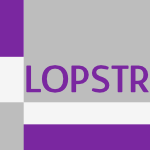 LOPSTR-2003-FlenerPA #combinator #modelling #problem #relational
LOPSTR-2003-FlenerPA #combinator #modelling #problem #relational- Introducing esra, a Relational Language for Modelling Combinatorial Problems (PF, JP, MÅ), pp. 214–232.
 RE-2003-LinNIJM #requirements #security
RE-2003-LinNIJM #requirements #security- Introducing Abuse Frames for Analysing Security Requirements (LL, BN, DCI, MJ, JDM), pp. 371–372.
 SAC-2003-Landrin-SchweitzerCPL #algorithm #interactive
SAC-2003-Landrin-SchweitzerCPL #algorithm #interactive- Introducing Lateral Thinking in Search Engines with Interactive Evolutionary Algorithms (YLS, PC, TP, EL), pp. 214–219.
 ICSE-2003-HedinBM #programming #re-engineering
ICSE-2003-HedinBM #programming #re-engineering- Introducing Software Engineering by means of Extreme Programming (GH, LB, BM), pp. 586–593.
 WICSA-2002-CuestaFBB #architecture
WICSA-2002-CuestaFBB #architecture- Introducing Reflection in Architecture Description Languages (CECQ, PdlF, MBS, MEBG), pp. 143–156.
 WICSA-2002-MaccariG #architecture
WICSA-2002-MaccariG #architecture- Introducing the Software Architectonic Viewpoint (AM, GHG), pp. 175–189.
 CSEET-2002-Host #education #empirical #re-engineering
CSEET-2002-Host #education #empirical #re-engineering- Introducing Empirical Software Engineering Methods in Education (MH), p. 170–?.
 CSEET-2002-PortB #tutorial
CSEET-2002-PortB #tutorial- Tutorial 1: Introducing Software Economics within SWE Project Courses (DP, BWB), p. 266.
 ITiCSE-2002-ChristensenC #framework #programming
ITiCSE-2002-ChristensenC #framework #programming- Frameworks in CS1: a different way of introducing event-driven programming (HBC, MEC), pp. 75–79.
 FASE-2002-Bubl #constraints
FASE-2002-Bubl #constraints- Introducing Context-Based Constraints (FB), pp. 249–263.
 CHI-2002-HerbslebABHF #chat
CHI-2002-HerbslebABHF #chat- Introducing instant messaging and chat in the workplace (JDH, DLA, DGB, MH, TAF), pp. 171–178.
 ICEIS-2002-NikolaidouA #automation #process
ICEIS-2002-NikolaidouA #automation #process- Introducing Business Process Automation in Dynamic Banking Activities (MN, DA), pp. 776–781.
 ICEIS-2002-Peters #enterprise #resource management
ICEIS-2002-Peters #enterprise #resource management- Introducing an Enterprise Resource Planning (ERP) System in a Hospital (SCAP), pp. 275–281.
 ICPR-v3-2002-Al-OhaliCS #termination
ICPR-v3-2002-Al-OhaliCS #termination- Introducing Termination Probabilities to HMM (YAO, MC, CYS), pp. 319–322.
 SEKE-2002-AversanoC #modelling #process
SEKE-2002-AversanoC #modelling #process- Introducing eservices in business process models (LA, GC), pp. 481–488.
 RE-2002-KauppinenKAL #how #requirements
RE-2002-KauppinenKAL #how #requirements- Introducing Requirements Engineering: How to Make a Cultural Change Happen in Practice (MK, SK, TA, LL), pp. 43–51.
 ICSM-2001-AversanoBLS #maintenance #process #workflow
ICSM-2001-AversanoBLS #maintenance #process #workflow- Introducing Workflow Management in Software Maintenance Processes (LA, SB, ADL, SS), pp. 441–450.
 ICEIS-v2-2001-PetersH
ICEIS-v2-2001-PetersH- Introducing Common Systems in International Financial Firms (SCAP, MSHH), pp. 859–863.
 TOOLS-USA-2001-McBreen #concept #object-oriented #ruby
TOOLS-USA-2001-McBreen #concept #object-oriented #ruby- Introducing OO Concepts with Ruby (PM), p. 379.
 ESEC-FSE-2001-ShullCT #empirical #process
ESEC-FSE-2001-ShullCT #empirical #process- An empirical methodology for introducing software processes (FS, JC, GT), pp. 288–296.
 ICLP-2001-BeldiceanuC #constraints #product line
ICLP-2001-BeldiceanuC #constraints #product line- Revisiting the Cardinality Operator and Introducing the Cardinality-Path Constraint Family (NB, MC), pp. 59–73.
 CAiSE-2000-KaindlM #question #research #why
CAiSE-2000-KaindlM #question #research #why- Why Is It So Difficult to Introduce RE Research Results into Mainstream RE Practice? (HK, JM), pp. 7–12.
 ICRE-2000-Greenspan #question #requirements #why
ICRE-2000-Greenspan #question #requirements #why- Why is it so Easy to Introduce Requirements Engineering Technology Transfer Panels into Mainstream Practice? (SJG), pp. 69–70.
 ICRE-2000-Kaindl #question #requirements #research #why
ICRE-2000-Kaindl #question #requirements #research #why- Why is it so Difficult to Introduce Requirements Engineering Research Results into Mainstream Requirements Engineering Practice? (HK), pp. 67–68.
 ICRE-2000-Mead #question #requirements #research #why
ICRE-2000-Mead #question #requirements #research #why- Why is it so Difficult to Introduce Requirements Engineering Research Results into Mainstream Requirements Engineering Practice? (NRM), pp. 75–76.
 ICRE-2000-Siddiqi #research
ICRE-2000-Siddiqi #research- Obstacles and Incentives in Introducing RE Research Results into RE Practice (JIAS), p. 77–?.
 ICSE-2000-Cinneide #automation #design pattern #refactoring
ICSE-2000-Cinneide #automation #design pattern #refactoring- Automated refactoring to introduce design patterns (MÓC), pp. 722–724.
 HCI-CCAD-1999-SchummerTTB #case study #experience
HCI-CCAD-1999-SchummerTTB #case study #experience- Introducing groupware in administrative environments — experiences from the POLIWORK project (JS, TT, DAT, AB), pp. 492–496.
 TOOLS-EUROPE-1999-Ishaq #industrial #lessons learnt #object-oriented
TOOLS-EUROPE-1999-Ishaq #industrial #lessons learnt #object-oriented- Lessons Learned Introducing an Object-Oriented Databse in the Telecom Industry (AI), pp. 214–223.
 RE-1999-Jacobs #case study #quality #requirements
RE-1999-Jacobs #case study #quality #requirements- Introducing Measurable Quality Requirements: A Case Study (SJ), pp. 172–179.
 DAC-1998-ParulkarGB #behaviour
DAC-1998-ParulkarGB #behaviour- Introducing Redundant Computations in a Behavior for Reducing BIST Resources (IP, SKG, MAB), pp. 548–553.
 ICSE-1998-MotoyoshiO #development #incremental #object-oriented
ICSE-1998-MotoyoshiO #development #incremental #object-oriented- An Incremental Project Plan: Introducing Cleanroom Method and Object-Oriented Development Method (YM, SO), pp. 430–433.
 CC-1998-LapkowskiH #multi #pointer
CC-1998-LapkowskiH #multi #pointer- Extended SSA Numbering: Introducing SSA Properties to Language with Multi-level Pointers (CL, LJH), pp. 128–143.
 ICDAR-1997-RahmanF #case study #multi #recognition #using
ICDAR-1997-RahmanF #case study #multi #recognition #using- Introducing New Multiple Expert Decision Combination Topologies: A Case Study using Recognition of Handwritten Characters (AFRR, MCF), p. 886–?.
 ITiCSE-1997-FeldmanB #concurrent #education #programming
ITiCSE-1997-FeldmanB #concurrent #education #programming- Concurrent programming CAN be introduced into the lower-level undergraduate curriculum (MBF, BDB), pp. 77–79.
 HCI-CC-1997-JasperEJNW #design #intranet #social #using
HCI-CC-1997-JasperEJNW #design #intranet #social #using- Using Cooperative Design to Introduce ORDBMS-Driven Intranet Applications to Collaborating Social Service Agencies (JEJ, RDE, TBJ, RN, SW), pp. 97–100.
 PLILP-1997-Roure #declarative
PLILP-1997-Roure #declarative- Introducing the Declarative Dungeon (DDR), pp. 407–417.
 ICSE-1997-BaresiOP #industrial #specification
ICSE-1997-BaresiOP #industrial #specification- Introducing Formal Specification Methods in Industrial Practice (LB, AO, MP), pp. 56–66.
 IFL-1996-BraineC #functional #object-oriented
IFL-1996-BraineC #functional #object-oriented- Introducing CLOVER: An Object-Oriented Functional Language (LB, CC), pp. 1–20.
 ICPR-1996-ChatzisP #fuzzy
ICPR-1996-ChatzisP #fuzzy- Introducing the select and split fuzzy cell Hough transform (VC, IP), pp. 552–556.
 ICPR-1996-SziranyiC #network #segmentation
ICPR-1996-SziranyiC #network #segmentation- Picture segmentation with introducing an anisotropic preliminary step to an MRF model with cellular neural networks (TS, LC), pp. 366–370.
 FPLE-1995-Keravnou #functional #programming
FPLE-1995-Keravnou #functional #programming- Introducing Computer Science Undergraduates to Principles of Programming Through a Functional Language (ETK), pp. 15–34.
 DLT-1995-Gramatovici #parsing
DLT-1995-Gramatovici #parsing- Introducing the Operational Parser (RG), pp. 466–471.
 CSEE-1994-EwardW
CSEE-1994-EwardW- Introducing Megaprogramming at the High School and Undergraduate Levels (ME, SPW), pp. 583–596.
 CSEE-1994-GrechenigB #reuse
CSEE-1994-GrechenigB #reuse- Introducing a Software Reuse Culture in Practice (TG, SB), pp. 527–539.
 CIKM-1994-Ambrosio #concept #reuse #semantics
CIKM-1994-Ambrosio #concept #reuse #semantics- Introducing Semantics in Conceptual Schema Reuse (APA), pp. 50–56.
 HCI-SHI-1993-YeS #design #interface #problem
HCI-SHI-1993-YeS #design #interface #problem- Introducing Problem Solving Strategies of Users into the Interface Design (NY, GS), pp. 873–878.
 TRI-Ada-1993-SitaramanG #re-engineering #reuse
TRI-Ada-1993-SitaramanG #re-engineering #reuse- Software Reuse: A Context for Introducing Software Engineering Principles in a Traditional Computer Science Second Course (MS, JG), pp. 137–146.
 TOOLS-USA-1993-LecoeucheS
TOOLS-USA-1993-LecoeucheS- Introducing States in the Object Model (HL, JLS), pp. 69–81.
 TRI-Ada-C-1992-Hermida #ada #anti #development #named
TRI-Ada-C-1992-Hermida #ada #anti #development #named- HEmut-PoliCaza: Introducing Ada in the University Through PC Anti-Virus Software Development (AH), pp. 148–156.
 TRI-Ada-T2-1992-Reifer #reuse
TRI-Ada-T2-1992-Reifer #reuse- Introducing Software Reuse (DJR), pp. 625–723.
 AdaEurope-1991-LarreAGG #modelling #process
AdaEurope-1991-LarreAGG #modelling #process- Introducing HOOD into Software Process Modelling Based Environments (JRL, NA, JJG, JG), pp. 212–226.
 STOC-1986-LandauV #algorithm #approximate #parallel #performance #string
STOC-1986-LandauV #algorithm #approximate #parallel #performance #string- Introducing Efficient Parallelism into Approximate String Matching and a New Serial Algorithm (GML, UV), pp. 220–230.
 GG-1986-HabelK
GG-1986-HabelK- May we introduce to you: hyperedge replacement (AH, HJK), pp. 15–26.
 ICSE-1976-Chu #design
ICSE-1976-Chu #design- Introducing a Software Design Language (YC), pp. 297–304.
 ITiCSE-2015-ChaudhariD #formal method
ITiCSE-2015-ChaudhariD #formal method CIAA-2015-Ade-IbijolaES #programming
CIAA-2015-Ade-IbijolaES #programming CHI-2015-AchibetCLM #3d #interactive #modelling #named
CHI-2015-AchibetCLM #3d #interactive #modelling #named CSCW-2015-LiZLDG #collaboration #editing #trade-off #wiki
CSCW-2015-LiZLDG #collaboration #editing #trade-off #wiki DUXU-UI-2015-AmaralBBM #concept #human-computer #women
DUXU-UI-2015-AmaralBBM #concept #human-computer #women HIMI-IKC-2015-GavishN
HIMI-IKC-2015-GavishN RecSys-2015-Guardia-Sebaoun #modelling #performance #recommendation
RecSys-2015-Guardia-Sebaoun #modelling #performance #recommendation ECSA-2014-OzturkSSA #architecture #estimation #refactoring
ECSA-2014-OzturkSSA #architecture #estimation #refactoring DATE-2014-PandaB #concurrent #thread
DATE-2014-PandaB #concurrent #thread HCI-AIMT-2014-CataniaPS #human-computer #interactive #internet
HCI-AIMT-2014-CataniaPS #human-computer #interactive #internet HCI-AIMT-2014-HulsmannM #named #recognition
HCI-AIMT-2014-HulsmannM #named #recognition LCT-NLE-2014-KirkegaardGS
LCT-NLE-2014-KirkegaardGS IJCAR-2014-HetzlLRTW #logic #quantifier #similarity
IJCAR-2014-HetzlLRTW #logic #quantifier #similarity CSEET-2013-CaiKJA #architecture #bibliography #design #education
CSEET-2013-CaiKJA #architecture #bibliography #design #education CSEET-2013-ShethBK #approach #re-engineering
CSEET-2013-ShethBK #approach #re-engineering ITiCSE-2013-PatitsasL #security
ITiCSE-2013-PatitsasL #security ITiCSE-2013-Renaud #student
ITiCSE-2013-Renaud #student DHM-SET-2013-AlmAGEVD #interactive #people
DHM-SET-2013-AlmAGEVD #interactive #people HCI-AS-2013-ParthasarathyF #interface
HCI-AS-2013-ParthasarathyF #interface SEKE-2013-PortugalO #process #specification
SEKE-2013-PortugalO #process #specification ER-BR-2013-HadadD #process #requirements #variability
ER-BR-2013-HadadD #process #requirements #variability CSMR-2012-BernardiCLPD #communication #debugging #developer #eclipse
CSMR-2012-BernardiCLPD #communication #debugging #developer #eclipse MSR-2012-AsaduzzamanBRS #android #case study #debugging
MSR-2012-AsaduzzamanBRS #android #case study #debugging CHI-2012-PlodererSHPB
CHI-2012-PlodererSHPB ICEIS-J-2012-HayashiMB12a #education
ICEIS-J-2012-HayashiMB12a #education ICEIS-J-2012-SilcherDMM12a #lifecycle
ICEIS-J-2012-SilcherDMM12a #lifecycle ICEIS-v1-2012-LambeckSAG #concept #enterprise #realtime
ICEIS-v1-2012-LambeckSAG #concept #enterprise #realtime SEKE-2012-BelkhatirOV #composition #quality
SEKE-2012-BelkhatirOV #composition #quality SAC-2012-NeumannC #algorithm #estimation
SAC-2012-NeumannC #algorithm #estimation DAC-2011-AarestadLPAA #process
DAC-2011-AarestadLPAA #process ITiCSE-2011-BellCCDH #programming #student
ITiCSE-2011-BellCCDH #programming #student ITiCSE-2011-WahbaFH #network #student
ITiCSE-2011-WahbaFH #network #student MSR-2011-ParninBM #how #java
MSR-2011-ParninBM #how #java DHM-2011-FritzscheJLBJP #editing #performance #process #simulation
DHM-2011-FritzscheJLBJP #editing #performance #process #simulation DUXU-v2-2011-ArdavanC #3d #exclamation #safety #towards
DUXU-v2-2011-ArdavanC #3d #exclamation #safety #towards HCI-ITE-2011-PoorJ #human-computer #interactive
HCI-ITE-2011-PoorJ #human-computer #interactive HCI-UA-2011-GeorgeS #collaboration #game studies #learning
HCI-UA-2011-GeorgeS #collaboration #game studies #learning HIMI-v2-2011-RorieKMBMMVSB #order #tool support
HIMI-v2-2011-RorieKMBMMVSB #order #tool support HIMI-v2-2011-XuB #interactive #mobile #navigation #usability
HIMI-v2-2011-XuB #interactive #mobile #navigation #usability ECIR-2011-SteinH #ranking
ECIR-2011-SteinH #ranking SPLC-2011-YoshimuraSOOAKWF #experience #multi #process #product line
SPLC-2011-YoshimuraSOOAKWF #experience #multi #process #product line IFL-2010-BoeijinkHK #functional #lazy evaluation
IFL-2010-BoeijinkHK #functional #lazy evaluation CHI-2010-WangC #concept #evaluation #multi #prototype
CHI-2010-WangC #concept #evaluation #multi #prototype SEKE-2010-PinheiroGMS #automation #industrial #testing
SEKE-2010-PinheiroGMS #automation #industrial #testing SAC-2010-ZengXCB #parametricity #scalability
SAC-2010-ZengXCB #parametricity #scalability SPLC-2010-CarbonM #concept
SPLC-2010-CarbonM #concept WICSA-ECSA-2009-KuhnMKSBT #aspect-oriented #performance
WICSA-ECSA-2009-KuhnMKSBT #aspect-oriented #performance HT-2009-Bonacho #online
HT-2009-Bonacho #online ITiCSE-2009-Cassapu #education #experience #interactive
ITiCSE-2009-Cassapu #education #experience #interactive ITiCSE-2009-Sooriamurthi #abstraction #composition
ITiCSE-2009-Sooriamurthi #abstraction #composition ICSM-2009-BrooksM #metric #similarity #testing
ICSM-2009-BrooksM #metric #similarity #testing HCI-NIMT-2009-SanoMSYY #adaptation
HCI-NIMT-2009-SanoMSYY #adaptation ICEIS-DISI-2009-Daute #approach #database #maintenance #realtime
ICEIS-DISI-2009-Daute #approach #database #maintenance #realtime SAC-2009-BohnetVD #debugging #execution #locality
SAC-2009-BohnetVD #debugging #execution #locality SPLC-2009-SchmidL #optimisation #product line #using
SPLC-2009-SchmidL #optimisation #product line #using LCTES-2009-CaspiCGPR #memory management #policy #scheduling
LCTES-2009-CaspiCGPR #memory management #policy #scheduling WICSA-2008-SozerT #modelling
WICSA-2008-SozerT #modelling DATE-2008-SchirnerD #modelling #scheduling #using
DATE-2008-SchirnerD #modelling #scheduling #using CSEET-2008-DeKoenigsberg #how #open source #student #why
CSEET-2008-DeKoenigsberg #how #open source #student #why FM-2008-McCombS #refinement
FM-2008-McCombS #refinement CHI-2008-SchmettowV #process #usability
CHI-2008-SchmettowV #process #usability CHI-2008-TerryKVSP #named #open source
CHI-2008-TerryKVSP #named #open source EDOC-2008-SchropferS
EDOC-2008-SchropferS ICEIS-ISAS2-2008-GustieneG #analysis #design
ICEIS-ISAS2-2008-GustieneG #analysis #design OOPSLA-2008-GilM #java #named #type system
OOPSLA-2008-GilM #java #named #type system RE-2008-SmithG #requirements
RE-2008-SmithG #requirements SAC-2008-HolandaBF #adaptation #self #transaction
SAC-2008-HolandaBF #adaptation #self #transaction DAC-2007-MarescauxC
DAC-2007-MarescauxC DATE-2007-LisselGG #design #industrial #perspective #verification
DATE-2007-LisselGG #design #industrial #perspective #verification HT-2007-LeeH #named
HT-2007-LeeH #named ITiCSE-2007-Arnold #interactive #learning #logic
ITiCSE-2007-Arnold #interactive #learning #logic ITiCSE-2007-GoldwasserL #network #programming
ITiCSE-2007-GoldwasserL #network #programming ITiCSE-2007-MillerS #agile #approach #embedded #programming #student
ITiCSE-2007-MillerS #agile #approach #embedded #programming #student ITiCSE-2007-TremblayMSZ #corpus #maintenance #student
ITiCSE-2007-TremblayMSZ #corpus #maintenance #student CSMR-2007-Suijs #experience #framework #legacy
CSMR-2007-Suijs #experience #framework #legacy PASTE-2007-PollockVSHFM #natural language #program analysis
PASTE-2007-PollockVSHFM #natural language #program analysis AGTIVE-2007-LevendovszkyLMM #mobile #tool support
AGTIVE-2007-LevendovszkyLMM #mobile #tool support SIGAda-2007-Barnes #ada #named
SIGAda-2007-Barnes #ada #named SIGAda-2007-Barnes07a #ada #named
SIGAda-2007-Barnes07a #ada #named CAiSE-2007-ValderasPP #design #development #process #web
CAiSE-2007-ValderasPP #design #development #process #web ICEIS-AIDSS-2007-Curley #framework #maturity
ICEIS-AIDSS-2007-Curley #framework #maturity ICEIS-DISI-2007-Curley #framework #maturity
ICEIS-DISI-2007-Curley #framework #maturity ICEIS-EIS-2007-Curley #framework #maturity
ICEIS-EIS-2007-Curley #framework #maturity ICEIS-HCI-2007-Curley #framework #maturity
ICEIS-HCI-2007-Curley #framework #maturity ICEIS-J-2007-Curley07a #framework #maturity
ICEIS-J-2007-Curley07a #framework #maturity ICEIS-SAIC-2007-Curley #framework #maturity
ICEIS-SAIC-2007-Curley #framework #maturity MoDELS-2007-LahireMVGBJ #aspect-oriented #modelling #variability
MoDELS-2007-LahireMVGBJ #aspect-oriented #modelling #variability MoDELS-2007-LahireMVGBJ #aspect-oriented #modelling #variability
MoDELS-2007-LahireMVGBJ #aspect-oriented #modelling #variability TOOLS-EUROPE-2007-KusmierekB
TOOLS-EUROPE-2007-KusmierekB RE-2007-SmithG #game studies #lightweight #requirements #using
RE-2007-SmithG #game studies #lightweight #requirements #using ICSE-2007-Ludi #requirements
ICSE-2007-Ludi #requirements SPLC-2007-SellierEU #enterprise #product line
SPLC-2007-SellierEU #enterprise #product line ASE-2006-KimZPW #automation #identification
ASE-2006-KimZPW #automation #identification ITiCSE-2006-HoltRS #education #python
ITiCSE-2006-HoltRS #education #python FM-2006-Boute #formal method #independence #problem #using
FM-2006-Boute #formal method #independence #problem #using FM-2006-ZhengWWX #approach #case study #development #formal method #object-oriented #using
FM-2006-ZhengWWX #approach #case study #development #formal method #object-oriented #using KDD-2006-Jonas
KDD-2006-Jonas SEKE-2006-Merz #approach #java #security #using
SEKE-2006-Merz #approach #java #security #using ECMDA-FA-2006-RiosBBG #development #maturity #modelling #roadmap
ECMDA-FA-2006-RiosBBG #development #maturity #modelling #roadmap SAC-2006-LagorioZ #java
SAC-2006-LagorioZ #java ICSE-2006-KobayashiKSP #agile #analysis #effectiveness #interactive
ICSE-2006-KobayashiKSP #agile #analysis #effectiveness #interactive WICSA-2005-AliPRC #aspect-oriented #calculus #mobile
WICSA-2005-AliPRC #aspect-oriented #calculus #mobile DATE-2005-KruseTEVS #contract #design #distributed #embedded #flexibility #process
DATE-2005-KruseTEVS #contract #design #distributed #embedded #flexibility #process CSEET-2005-Cowling #approach #diagrams #formal method
CSEET-2005-Cowling #approach #diagrams #formal method ITiCSE-2005-Hamza #analysis #approach #design #object-oriented
ITiCSE-2005-Hamza #analysis #approach #design #object-oriented ITiCSE-2005-Ludi #process #re-engineering #student
ITiCSE-2005-Ludi #process #re-engineering #student ITiCSE-2005-MarquesAMC #programming #student #using
ITiCSE-2005-MarquesAMC #programming #student #using ITiCSE-2005-Rosenthal #multi #recursion #using
ITiCSE-2005-Rosenthal #multi #recursion #using CSMR-2005-SvenssonH #agile #evolution #maintenance #process
CSMR-2005-SvenssonH #agile #evolution #maintenance #process ICSM-2005-Demeyer #morphism #performance #polymorphism #question #what
ICSM-2005-Demeyer #morphism #performance #polymorphism #question #what ECMDA-FA-2005-Bloomfield #industrial #metamodelling #model transformation
ECMDA-FA-2005-Bloomfield #industrial #metamodelling #model transformation GPCE-2005-LawallDMM #composition #domain-specific language
GPCE-2005-LawallDMM #composition #domain-specific language SAC-2005-LunaLSHHB #learning
SAC-2005-LunaLSHHB #learning ICSE-2005-SchmidJKM #approach #embedded
ICSE-2005-SchmidJKM #approach #embedded CBSE-2004-SandstromFA #component #embedded #realtime #safety
CBSE-2004-SandstromFA #component #embedded #realtime #safety ITiCSE-2004-Gal-EzerLS04a
ITiCSE-2004-Gal-EzerLS04a ITiCSE-2004-Leska #education #programming #using
ITiCSE-2004-Leska #education #programming #using ITiCSE-2004-Liffick #human-computer
ITiCSE-2004-Liffick #human-computer CSCW-2004-HupferCRP #collaboration #development
CSCW-2004-HupferCRP #collaboration #development ICEIS-v4-2004-BalatosPIJL #concept #design #e-commerce #framework
ICEIS-v4-2004-BalatosPIJL #concept #design #e-commerce #framework SPLC-2004-StegerTBMPSF #case study #experience
SPLC-2004-StegerTBMPSF #case study #experience CSEET-2003-BarbosaMLG #design #testing
CSEET-2003-BarbosaMLG #design #testing ITiCSE-2003-Kruse #approach #representation
ITiCSE-2003-Kruse #approach #representation ITiCSE-2003-Papastergiou #development #education #student #web
ITiCSE-2003-Papastergiou #development #education #student #web ITiCSE-2003-PattersonKR #testing
ITiCSE-2003-PattersonKR #testing CIAA-2003-LombardyPRS
CIAA-2003-LombardyPRS CAiSE-2003-KovseM #sql
CAiSE-2003-KovseM #sql ICEIS-v3-2003-ChangDC #concept #enterprise #information management #lifecycle
ICEIS-v3-2003-ChangDC #concept #enterprise #information management #lifecycle LOPSTR-2003-FlenerPA #combinator #modelling #problem #relational
LOPSTR-2003-FlenerPA #combinator #modelling #problem #relational RE-2003-LinNIJM #requirements #security
RE-2003-LinNIJM #requirements #security SAC-2003-Landrin-SchweitzerCPL #algorithm #interactive
SAC-2003-Landrin-SchweitzerCPL #algorithm #interactive ICSE-2003-HedinBM #programming #re-engineering
ICSE-2003-HedinBM #programming #re-engineering WICSA-2002-CuestaFBB #architecture
WICSA-2002-CuestaFBB #architecture WICSA-2002-MaccariG #architecture
WICSA-2002-MaccariG #architecture CSEET-2002-Host #education #empirical #re-engineering
CSEET-2002-Host #education #empirical #re-engineering CSEET-2002-PortB #tutorial
CSEET-2002-PortB #tutorial ITiCSE-2002-ChristensenC #framework #programming
ITiCSE-2002-ChristensenC #framework #programming FASE-2002-Bubl #constraints
FASE-2002-Bubl #constraints CHI-2002-HerbslebABHF #chat
CHI-2002-HerbslebABHF #chat ICEIS-2002-NikolaidouA #automation #process
ICEIS-2002-NikolaidouA #automation #process ICEIS-2002-Peters #enterprise #resource management
ICEIS-2002-Peters #enterprise #resource management ICPR-v3-2002-Al-OhaliCS #termination
ICPR-v3-2002-Al-OhaliCS #termination SEKE-2002-AversanoC #modelling #process
SEKE-2002-AversanoC #modelling #process RE-2002-KauppinenKAL #how #requirements
RE-2002-KauppinenKAL #how #requirements ICSM-2001-AversanoBLS #maintenance #process #workflow
ICSM-2001-AversanoBLS #maintenance #process #workflow ICEIS-v2-2001-PetersH
ICEIS-v2-2001-PetersH TOOLS-USA-2001-McBreen #concept #object-oriented #ruby
TOOLS-USA-2001-McBreen #concept #object-oriented #ruby ESEC-FSE-2001-ShullCT #empirical #process
ESEC-FSE-2001-ShullCT #empirical #process ICLP-2001-BeldiceanuC #constraints #product line
ICLP-2001-BeldiceanuC #constraints #product line CAiSE-2000-KaindlM #question #research #why
CAiSE-2000-KaindlM #question #research #why ICRE-2000-Greenspan #question #requirements #why
ICRE-2000-Greenspan #question #requirements #why ICRE-2000-Kaindl #question #requirements #research #why
ICRE-2000-Kaindl #question #requirements #research #why ICRE-2000-Mead #question #requirements #research #why
ICRE-2000-Mead #question #requirements #research #why ICRE-2000-Siddiqi #research
ICRE-2000-Siddiqi #research ICSE-2000-Cinneide #automation #design pattern #refactoring
ICSE-2000-Cinneide #automation #design pattern #refactoring HCI-CCAD-1999-SchummerTTB #case study #experience
HCI-CCAD-1999-SchummerTTB #case study #experience TOOLS-EUROPE-1999-Ishaq #industrial #lessons learnt #object-oriented
TOOLS-EUROPE-1999-Ishaq #industrial #lessons learnt #object-oriented RE-1999-Jacobs #case study #quality #requirements
RE-1999-Jacobs #case study #quality #requirements DAC-1998-ParulkarGB #behaviour
DAC-1998-ParulkarGB #behaviour ICSE-1998-MotoyoshiO #development #incremental #object-oriented
ICSE-1998-MotoyoshiO #development #incremental #object-oriented CC-1998-LapkowskiH #multi #pointer
CC-1998-LapkowskiH #multi #pointer ICDAR-1997-RahmanF #case study #multi #recognition #using
ICDAR-1997-RahmanF #case study #multi #recognition #using ITiCSE-1997-FeldmanB #concurrent #education #programming
ITiCSE-1997-FeldmanB #concurrent #education #programming HCI-CC-1997-JasperEJNW #design #intranet #social #using
HCI-CC-1997-JasperEJNW #design #intranet #social #using PLILP-1997-Roure #declarative
PLILP-1997-Roure #declarative ICSE-1997-BaresiOP #industrial #specification
ICSE-1997-BaresiOP #industrial #specification IFL-1996-BraineC #functional #object-oriented
IFL-1996-BraineC #functional #object-oriented ICPR-1996-ChatzisP #fuzzy
ICPR-1996-ChatzisP #fuzzy ICPR-1996-SziranyiC #network #segmentation
ICPR-1996-SziranyiC #network #segmentation FPLE-1995-Keravnou #functional #programming
FPLE-1995-Keravnou #functional #programming DLT-1995-Gramatovici #parsing
DLT-1995-Gramatovici #parsing CSEE-1994-EwardW
CSEE-1994-EwardW CSEE-1994-GrechenigB #reuse
CSEE-1994-GrechenigB #reuse CIKM-1994-Ambrosio #concept #reuse #semantics
CIKM-1994-Ambrosio #concept #reuse #semantics HCI-SHI-1993-YeS #design #interface #problem
HCI-SHI-1993-YeS #design #interface #problem TRI-Ada-1993-SitaramanG #re-engineering #reuse
TRI-Ada-1993-SitaramanG #re-engineering #reuse TOOLS-USA-1993-LecoeucheS
TOOLS-USA-1993-LecoeucheS TRI-Ada-C-1992-Hermida #ada #anti #development #named
TRI-Ada-C-1992-Hermida #ada #anti #development #named TRI-Ada-T2-1992-Reifer #reuse
TRI-Ada-T2-1992-Reifer #reuse AdaEurope-1991-LarreAGG #modelling #process
AdaEurope-1991-LarreAGG #modelling #process STOC-1986-LandauV #algorithm #approximate #parallel #performance #string
STOC-1986-LandauV #algorithm #approximate #parallel #performance #string GG-1986-HabelK
GG-1986-HabelK ICSE-1976-Chu #design
ICSE-1976-Chu #design









